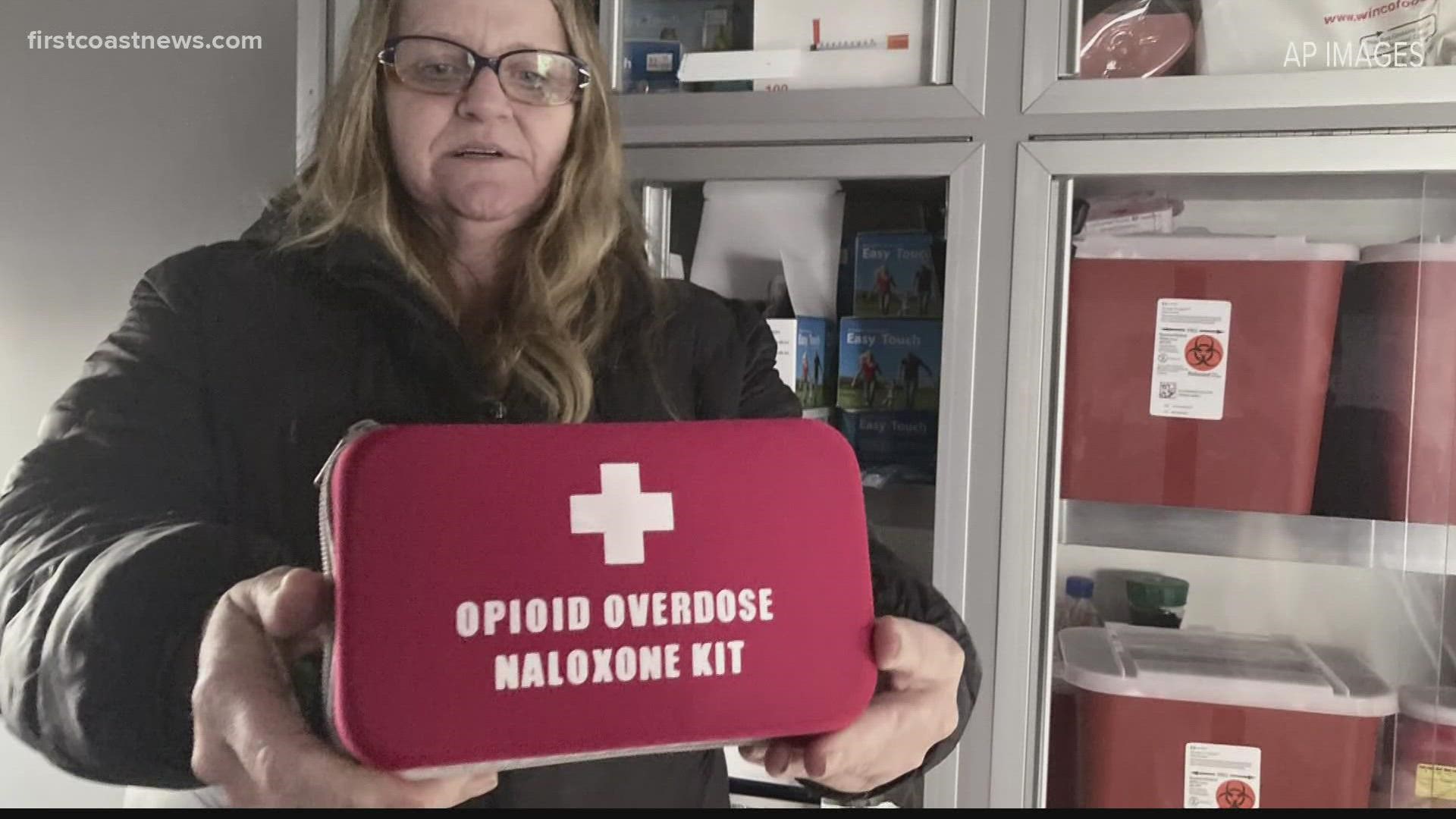JACKSONVILLE, Fla — Millions of dollars are going to help in a crisis we hear a little less about these days but is still taking many lives.
Duval County is getting almost $50 million to fight the opioid epidemic, but the question now is how exactly the money should be used. The money comes from a settlement with major drug companies for their role in the opioid epidemic. It will have to be used for prevention, education and treatment and will be paid out over 18 years.
The city doesn't have a plan for the money yet, but those who work in the field and are in recovery themselves have ideas of where it could do the most good.
"The reason why the odds aren't great for people who attempt to stay sober is because they go to treatment for 30 days, for 15 days, for 60 days, for 90 days, and then they go back to their life like nothing happened," said Chris Blauvelt, Family First Adolescent Services family ambassador and outreach professional for North Florida.
If Blauvelt could pump money into one place to help the most people, it would be into support for lifelong recovery. He knows this works because he's a success story. He's been in recovery for 10 years and is now working with boys fighting addiction.
"It is suggested that you immerse yourself in a recovery-based environment," he said. "That could look like a faith-based ministry, it could look like a 12-step house or frequent attendance at 12-step meetings, continued visits with a therapist, continued visits with a counselor or a psychiatrist, and all that's expensive."
Blauvelt says many of the people who really need it can't afford it at all. That's what he encountered in his work in admissions at Augustine Recovery Center.
"Most of them don't have the resources," Blauvelt said. "They don't have the insurance that's going to be good enough. I worked with examples of people who weren't able to even get to the first step of good, accessible, affordable treatment every day."
Dr. Raymond Pomm, chief medical officer with Gateway Community Services, says the money needs to go across the board into prevention, education and treatment.
"We need that money in all of those categories," he said.
He says the need is dire because of how common fentanyl is. It's a synthetic drug up to 100 times more powerful than morphine.
"No matter what drug you're getting on the street, there's a good chance you're going to be exposed to fentanyl, and good luck living through that," he said.
Pomm says he's seeing more adolescents who are overdosing than ever before.
"It is getting worse," he said. "We can say from Project Save Lives, seeing our urinalysis, 70% of cocaine has fentanyl."
The founder of The Augustine Recovery Center tells First Coast News he thinks the money needs to go to long-term treatment centers and the outpatient care that follows, but he doesn't think they'll see a dime and that the money will go elsewhere.

